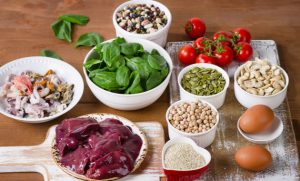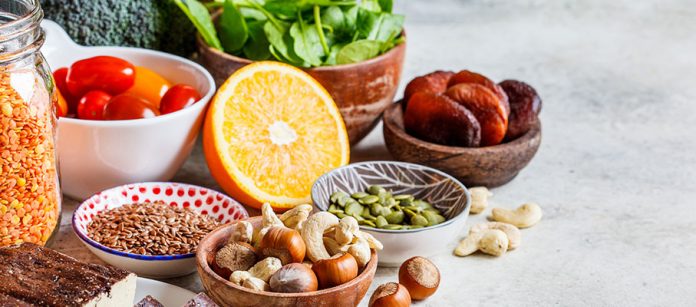Hemoglobin is a protein found in blood cells that has the function of carrying oxygen around the body. It also takes carbon dioxide out of the cells and returns it to the lungs to be exhaled. In the following article, we get to know about How to increase Hemoglobin? So please don’t skip the article from anywhere and read it carefully because it will be advantageous for you guys.
Hemoglobin values: when defined as low
Specifically, there are precise values below which we can speak of low hemoglobin and vary according to age and sex to increase Hemoglobin:
Children (0-12 years)
Birth: 13.5 to 24.0 g / dl
Age> 1 month: 10.0 to 20.0 g / dl
Age 1-2 months: 10.0 to 18.0 g / dl
From the Age 2-6 months: 9 , 5 to 14.0 g / dl
Age 6 months to 2 years: 10.5 to 13.5 g / dl
Age 2 to 6 years: 11.5 to 13.5 g / dl
From the Age 6 to 12 years: 11.5 to 15.5 g / dl
Adults (men)
Age 12-18 years: 13.0 to 16.0 g / dl
Age> 18 years: 13.6 to 17.7 g / dl
Adults (women)
Age 12-18 years: 12.0 to 16.0 g / dl
Age> 18 years: 12.1 to 15.1 g / dl
Causes low hemoglobin
Some causes of low hemoglobin levels, such as:
- iron-deficiency anemia
- pregnancy
- liver problems
- urinary tract infections
Additionally, some people naturally have low hemoglobin levels without any relevant cause to increase Hemoglobin. Other people have low hemoglobin levels but without any symptoms.
What to eat in case of low Hemoglobin
Nutrition is the first shock cure for low Hemoglobin to increase Hemoglobin. If common hemoglobin values are detected in the blood, the first action plan is to eat foods rich in iron and folic acid to increase Hemoglobin.
Foods high in iron are:
- liver and offal meats
- clams beef
- broccoli
- Cabbage
- Spinach
- green beans
- beans and lentils
- Tofu
- baked potatoes
- iron-enriched cereals and bread
Folate (or pteroyl-glutamic acid, or Vitamin B9) is a B vitamin that the body uses to make heme, the part of red blood cells that contains Hemoglobin. Without enough folate, red blood cells cannot mature to increase Hemoglobin. This can lead to folate deficiency anemia and low hemoglobin levels.
Increasing dietary folate is possible by eating more:
- beef
- spinach
- avocado
- lettuce
- rice
- beans
- Peanuts
Maximize iron absorption
Whether you increase your iron intake through food or supplements to increase Hemoglobin, it’s also essential to make sure your body quickly processes the extra iron you have taken to improve Hemoglobin. Certain factors can increase or decrease the amount of iron the body absorbs to increase Hemoglobin.
Measures that increase the absorption of iron
When eating something high in iron or taking an iron supplement, it is best to eat foods rich in vitamin C or take a vitamin C supplement at the same time to increase Hemoglobin. Vitamin C helps increase the amount of iron the body absorbs. A practical tip: squeeze some fresh lemon on iron-rich foods to increase its absorption to increase Hemoglobin.
The following foods are rich in vitamin C:
- lemon oranges
- grapefruit (citrus fruits in general)
- strawberries
- Kiwi
- dark green leafy vegetables
Furthermore, vitamin A (and beta-carotene, which helps the body produce it) contributes to the more excellent iron absorption to increase Hemoglobin. Vitamin A is found in animal food sources, such as fish and liver. Beta-carotene is usually found in red, yellow, and orange fruits and vegetables to increase Hemoglobin, such as:
- carrots
- winter squash
- sweet potatoes
- mango
When should I see my doctor if I have low hemoglobin values?
There are cases in which diet alone or supplementation alone are insufficient to restore average hemoglobin values to increase Hemoglobin. It is imperative to contact your doctor to increase Hemoglobin mainly if the following symptoms exist:
- excessive paleness and almost white gums
- muscle fatigue and weakness
- rapid or irregular heartbeat
- frequent headaches
- frequent (and unexplained) bruising

Suppose an increased intake of iron with the diet or food supplements does not achieve the intended purpose of increasing Hemoglobin. In that case, it is possible to resort to the introduction of iron intravenously, which must be decided by the doctor and carried out in a doctor’s office to increase Hemoglobin. Never as in this case, the “do it yourself” is strongly prohibited from increasing Hemoglobin.
Also read: how to get rid of pimples overnight.




